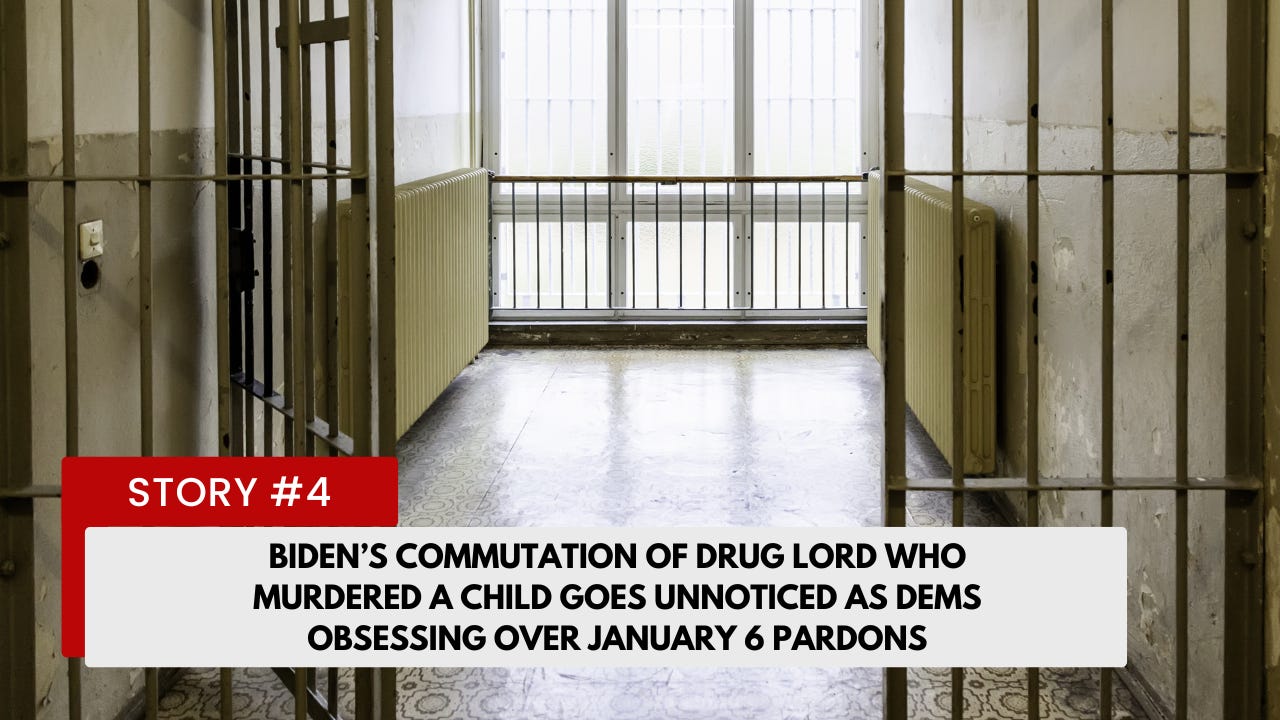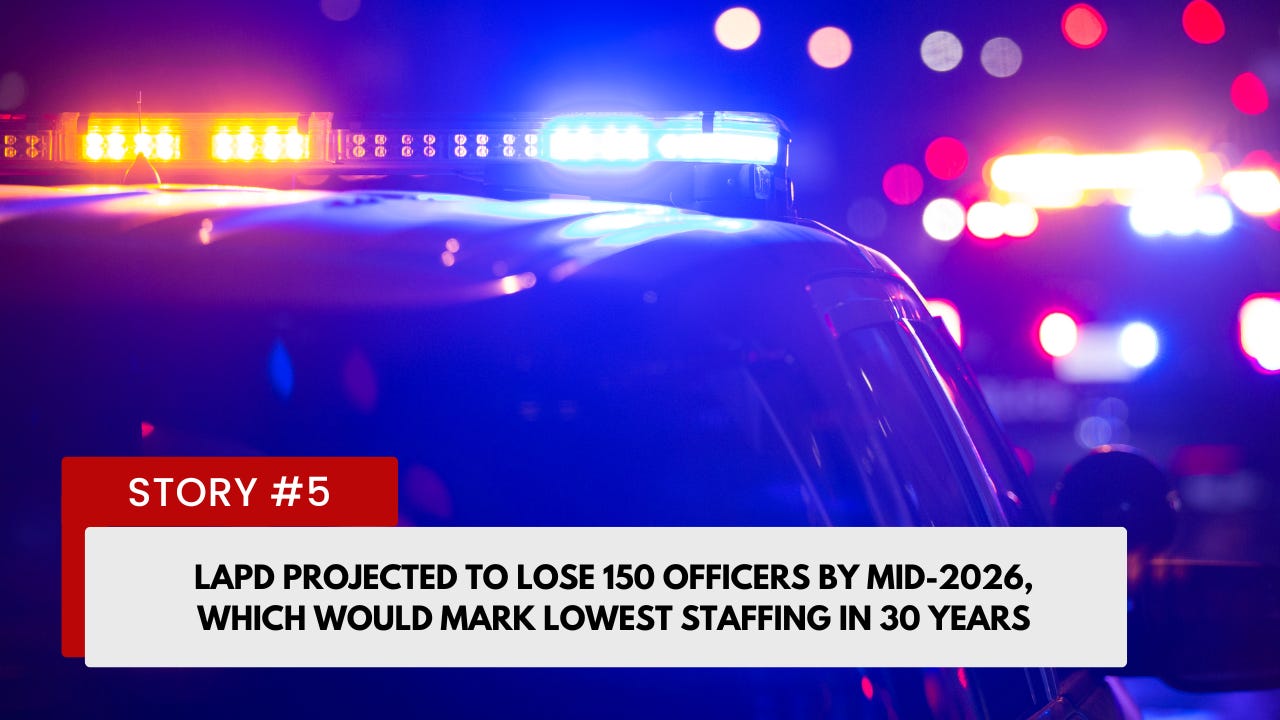This email is free weekdays, but the in-depth investigations and shows I produce rely on your support.
I left a high-paying media job to bring you real, independent journalism.
For just $6/month, you can help keep this work alive. Cancel anytime. Click the red subscribe button to join!


A Lenawee County Democrat who posted an unhinged rant denying the 2024 election results and labeling immigration officials as “Nazi collaborators” is doubling down.
Lenawee County Democratic Party Chairman Bill Swift called in to Talk Back Radio with Doug Spade and Mike Clement on Saturday to discuss the post, which was deleted from the party’s Facebook page shortly after it was posted last week.
Swift on Saturday also called for the death penalty for the president’s supporters.
A Lenawee County Democrat who posted an unhinged rant denying the 2024 election results and labeling immigration officials as “Nazi collaborators” is doubling down.
Lenawee County Democratic Party Chairman Bill Swift called in to Talk Back Radio with Doug Spade and Mike Clement on Saturday to discuss the post, which was deleted from the party’s Facebook page shortly after it was posted last week.
Swift on Saturday also called for the death penalty for the president’s supporters.
Swift alleged the party removed the post over concerns supporters of President Donald Trump “might do violence to people in our community,” but made it clear “we as a party and I as an individual absolutely 100% support the statements that we made.”
He described the post as “outlining a very rational argument” about Trump’s inauguration and the president’s immediate move to crack down on illegal immigration.
Swift alleged Trump-supporter and the world’s richest man, Elon Musk, “performed two Hitler salutes, two Nazi salutes” during the Jan. 20 inauguration.
“This is a deliberate, very clear, unambiguous Nazi salute,” he said. Click here to read more.

President Donald Trump is reportedly set to reinstate service members discharged from the military under the Biden administration’s COVID vaccine mandate.
Fox News reported Monday morning that Trump plans to sign an executive order allowing those pushed out the door to return to the military at their previous rank with back pay and benefits. Under President Joe Biden, more than 8,000 service members were booted because they chose not to get the COVID jab.
“The Executive Order directs the Secretary of Defense to reinstate all members of the military (active and reserve) who were discharged for refusing the COVID vaccine and who request to be reinstated,” a White House fact sheet obtained by Fox News says.
“From 2021 to 2023, the Biden Administration and former Secretary of Defense Lloyd Austin discharged over 8,000 troops solely due to their COVID-19 vaccination status,” it adds. “After the vaccine mandate was repealed in 2023, only 43 of the more than the 8,000 troops dismissed elected to return to service under the Biden Administration and Secretary Austin.” Click here to read more.

NEW YORK, NY - Walking into a bank feels like walking into any other business. Sure, there are a few extra cameras and an armed guard or two, but otherwise, it's a typical experience. What you don't see is the flood of reports—tens of thousands every day—that banks and other financial institutions file with the government, logging what Americans are doing with their money.
Banks may look like private businesses on the outside, but they have long been deputized on the inside as undercover agents for federal law enforcement.
Finance is among the most private aspects of our lives—we cover the keypad at ATMs, shred financial statements, and use multifactor authentication for online accounts. Yet what we really have is the illusion of financial privacy. Our information might be shielded from much of the general public, but not from the government.
The problem stems from a series of laws now known as the "Bank Secrecy Act regime." Beginning in 1970, the Bank Secrecy Act made two major changes to the financial system. First, the law requires banks to maintain records on customers "where such records have a high degree of usefulness in criminal, tax, or regulatory investigations or proceedings." Click here to read more.

WASHINGTON D.C. - Upon Joe Biden’s exit from the White House, he threw in a series of questionable pardons and commutations including one that commuted the sentence of a “drug lord who murdered an eight-year old boy and his mother.” According to RedState, Adrian Peeler, who is said to have murdered the child and his mother to stop them from testifying, was among those whose sentences were commuted at the ACLU’s request to pardon “non-violent drug offenders.” Peeler is reportedly set to be released in July.
Biden said in a statement upon the release of 2,500 people convicted of nonviolent drug offenses, that pardoning them is “an important step toward righting historic wrongs, correcting sentencing disparities, and providing deserving individuals the opportunity to return to their families and communities after spending far too much time behind bars,” according to the AP. Click here to read more.

LOS ANGELES — When Los Angeles Mayor Karen Bass gave pay raises to the city’s rank-and-file police officers last year, she sold it as a sensible investment toward regrowing the LAPD to the 9,500-member force it was before her election in 2022.
In the months since, Bass and leaders in the Los Angeles Police Department have continued to project optimism about reaching that goal.
Behind the scenes, though, officials are starting to confront the reality that the LAPD buildup won’t happen anytime soon — while acknowledging that the country’s third-largest police department may even continue to shrink.
New projections included in the department’s fiscal year 2026 budget proposal show that between recruiting shortfalls and attrition, leaders expect to lose more than 150 cops, leaving a force of about 8,620 by June 30, 2026 . That would mark the lowest deployment in roughly 30 years, records show.
During public appearances, Bass, LAPD Chief Jim McDonnell and other top leaders are still making the case that the department needs to grow, arguing more manpower is required to maintain public safety. The Palisades fire recently showed the department can be stretched thin during a major disaster. Meanwhile, the upcoming World Cup and Olympic Games loom as massive security challenges. Click here to read more.



















